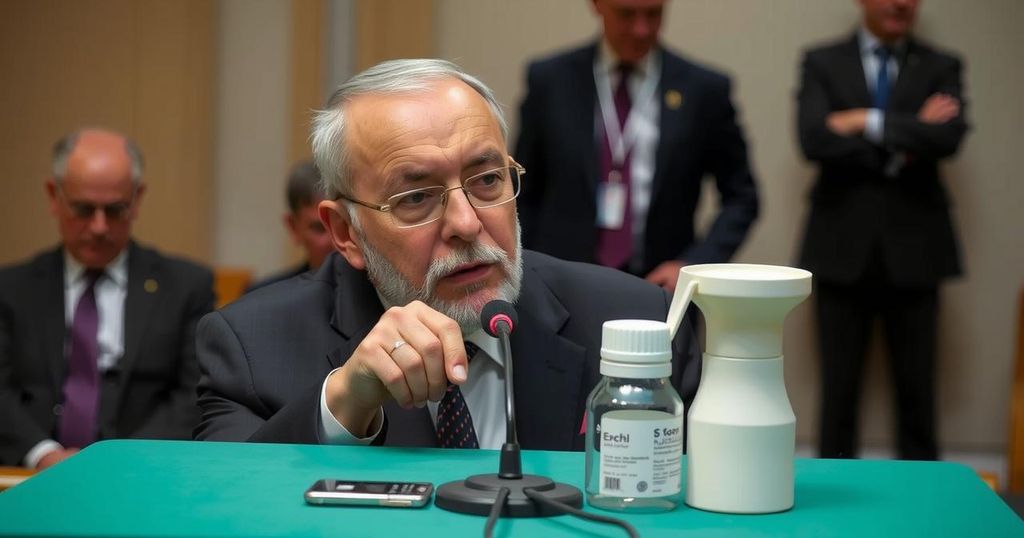Syrian Elections May Take Up to Four Years, Says Interim Leader Ahmad al-Sharaa

Syrian de facto leader Ahmad al-Sharaa announced that elections may take up to four years to organize following the recent overthrow of Bashar al-Assad. He emphasized the need for new infrastructure and a constitution, aiming to avoid previous governance errors. Al-Sharaa is actively seeking international legitimacy and highlighting the role of regional powers like Saudi Arabia, while distancing from a jihadist past.
Elections in Syria may not occur for as long as four years, as stated by the de facto leader, Ahmad al-Sharaa, following the recent overthrow of Bashar al-Assad’s regime by his rebel group. Al-Sharaa, known for his leadership of the Islamist group Hayat Tahrir Al-Sham (HTS), emphasized the need for infrastructure preparation and the drafting of a new constitution, which he indicated could take up to three years. The interim government aims to ensure that the mistakes of the past, under Assad’s 50-plus years of rule, do not recur in the new constitution, which is pivotal for the country’s future.
Furthermore, al-Sharaa outlined his vision for reconstructing Syria, remarking that the current period is a unique opportunity for foundational change, not merely governance. He mentioned that HTS would eventually dissolve, following the upcoming National Dialogue Conference. Al-Sharaa also expressed a desire for Russia to maintain its presence in Syria, suggesting a respectful relationship to continue.
The visit of a Ukrainian delegation to Damascus indicates growing international engagement, although al-Sharaa’s past ties to jihadism may complicate his pursuit of legitimacy. In recent diplomatic efforts, he has met with various European and Middle Eastern delegations, reflecting his move towards embracing a more statesman-like persona as he distances himself from his earlier life. Moreover, al-Sharaa acknowledged the significant role of Saudi Arabia in Syria’s future, urging Iran to reconsider its regional interventions.
Overall, al-Sharaa’s comments signal a careful and strategic approach to govern the new Syria, focusing on rebuilding and international relations while committing to a political transition.
The context of these comments arises from the recent overthrow of Bashar al-Assad’s government by Ahmad al-Sharaa and his group HTS. The shift in power has raised questions about the future of governance in Syria, particularly concerning the timeline for elections and the establishment of a new political framework, which requires an updated constitution and the rebuilding of national infrastructure. Al-Sharaa’s alignment with international perspectives and his attempts to navigate diplomatic relationships underscores the complexity of Syria’s transitional phase following years of conflict. Furthermore, his previous ties to jihadism and the significant shift in his political positioning are crucial for understanding current dynamics in Syria as he seeks legitimacy both regionally and internationally.
In conclusion, Ahmad al-Sharaa’s statements outline a tentative and strategic plan for Syria’s electoral future, focusing on essential preparations for a functioning government infrastructure and a new constitution. His processes for governance aim to learn from the past while establishing a new order that avoids previous mistakes. Building international relationships, particularly with Saudi Arabia and neighboring countries, highlights al-Sharaa’s attempts to solidify his position and the legitimacy of the new leadership in the evolving geopolitical landscape. The coming years are critical as Syria navigates the complexities of rebuilding and establishing a stable political entity.
Original Source: www.cnn.com








